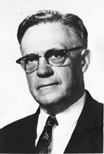Symposium Synopsis
Engineering Microbes
for the Chemical Industry

In the 20th century, the field of chemical engineering developed the methods and the underlying principles to efficiently refine fossil fuels into the array of products used by consumers. These products include transportation fuels, materials, pharmaceuticals, and specialty chemicals that enable our current lifestyle. Unfortunately, this system is not sustainable and societal pressures to change are increasing. New processes are needed to build a sustainable chemical economy, to reduce dependence on foreign materials, to reduce greenhouse gas emissions, to eliminate the use of toxic chemicals, to produce new medicines, and to stimulate new industries. For these reasons, the next generation of scientists and engineers will develop new methods to make chemical products from renewable resources that are ultimately derived from solar energy. This symposium, hosted by Assistant Professors Pfleger and Reed will focus on recent efforts to engineer microorganisms for the production of fuels, pharmaceuticals, and high-value chemicals.


